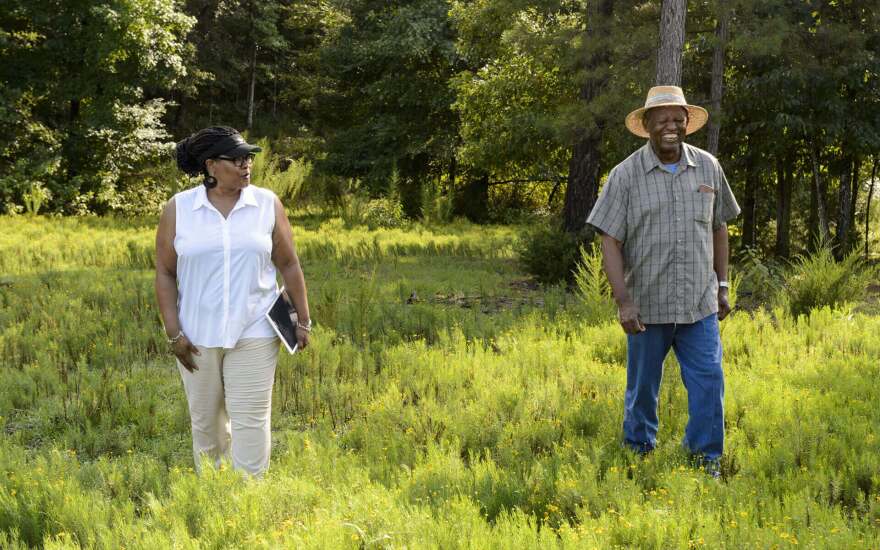It is difficult to disentangle agriculture from oppression in African American history. From slavery to sharecropping, farming for black Americans has frequently manifested in some form of exploitation. But scholar Monica White aims to reframe the history of black agriculture through examining moments of resistance and resilience.
White is an associate professor of environmental justice within the Nelson Institute for Environmental Studies and the department of Community and Environmental Sociology at the University of Wisconsin-Madison and the author of the new book “Freedom Farmers: Agricultural Resistance and the Black Freedom Movement” (UNC Press/2018). In it she explores examples including Fannie Lou Hamer’s Freedom Farm Cooperative at the Mississippi Delta in the 1960s and ‘70s and community gardens in Detroit today.

After moving back to Detroit to take care of her parents, White noticed how black communities were turning to agriculture to support themselves in the aftermath of Detroit’s economic downturn. As the city’s population plummeted, space freed up for community use.
“People didn't have access to resources with regard to grocery stores and what have you,” White said. “[They] started taking matters into their own hands and utilizing these vacant lots to produce food, but also not just food for themselves, but food for community.”
Previously abandoned spaces were converted into community gardens and became hubs for music, artwork, and even classes on nutrition and farming. Learning about these projects and speaking with farmers whose families have owned land for decades made White curious about the roots of black agriculture.
She dug into historical figures like George Washington Carver, Booker T Washington, W. E. B. Du Bois and Fannie Lou Hamer, calling them the “The Three Wise Men and the Sister that showed them what to do.”
The men were relatively conservative in their efforts by today’s standards, but White is quick to say that to label their work as “accommodationist” is to shortchange their contributions. “I think that, in overlooking all that [Booker T. Washington] did for farmers, is really to miss an opportunity to examine the role and the importance, and often the significance of food production,” she explains.
Her book exalts Fannie Lou Hamer as the true engineer of the black farming cooperative movement. Hamer was a civil rights activist in the mid 20th century who started the Freedom Farm Cooperative in 1969 in Ruleville, Mississippi. The co-op held 680 acres of land that black Americans could own and farm collectively. “They had a mobile food market. They had commercial kitchens. They had a community growing space. They provided all kinds of educational retraining programs for folks who were fired from their jobs for registering to vote,” says White. It was a model of community resilience for African Americans in the Jim Crow south.
White also pushes back against the term food desert, which she argues does not properly identify the structural barriers that cause certain communities to experience food insecurity. “We produce enough food to eat, [and] for everyone to be fed. But the ways that we distribute, the ways we process it, the ways we get rid of [and waste] a third of the food we produce … The supply chain is fractured,” White explains. She points to Detroit as an example of this inequity in practice. A lot of food passes through Eastern Market, a wholesale area of Detroit. Still, we think of Detroit a food insecure city.
Working toward food justice means recognizing the ways in which people are disconnected from nutrient rich foods and trying to rectify the structural barriers that prevent total access to those foods. White says that with the rise of local and organic produce in supermarkets, the movement is making progress, but until big players like the USDA and Big Ag recognize the roles small-scale and community agriculture fill in food justice for marginalized communities, there is still work to be done.
White will speak at the ticketed Farm to Fork Annual Sustainable Agriculture Lecture at Lavender Oaks Farm in Chapel hill on Thursday, Sept. 5.



